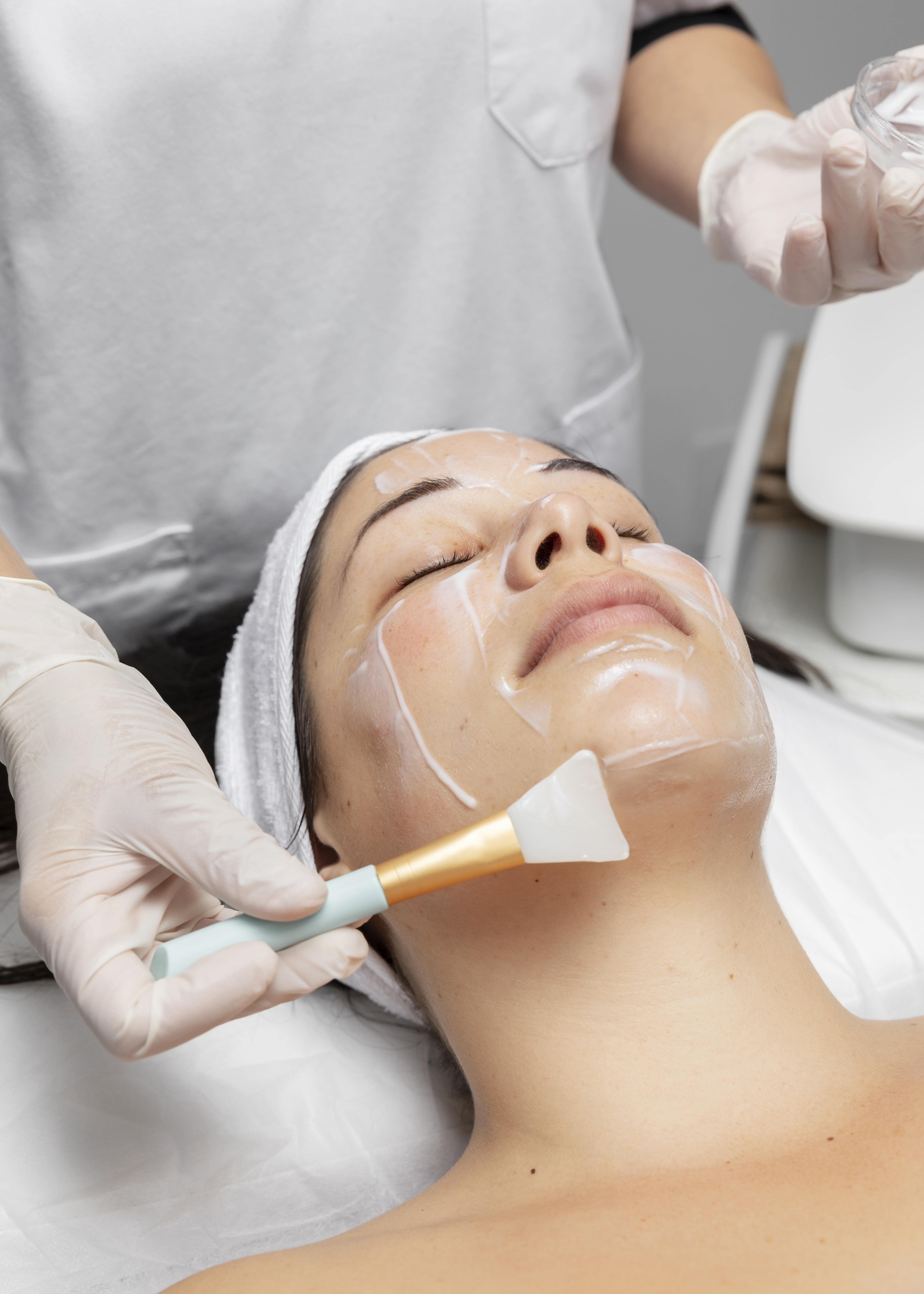Chemical Peels
Chemical peels are cosmetic procedures that involve the application of a chemical solution to the skin to exfoliate and promote the regeneration of new, healthier skin cells. This process results in improved skin texture, tone, and appearance. Chemical peels are commonly used to address a variety of skin concerns, including acne, fine lines, wrinkles, uneven pigmentation, and sun damage. There are different types of chemical peels, ranging from superficial to deep, and they can be customized based on an individual’s specific skin needs and goals.
METHODS
Exfoliation
The chemical solution applied during a peel works to remove the outermost layer of damaged or dead skin cells, revealing fresher, more youthful skin beneath.
Stimulation of Skin Regeneration
By exfoliating the top layer of skin, chemical peels stimulate the skin’s natural healing processes, which leads to increased collagen production and the growth of new, healthier skin cells.
ADVANTAGES
Improved Skin Texture
Chemical peels can significantly improve the texture of the skin, making it smoother and more even.
Reduction of Hyperpigmentation
Chemical peels can help reduce the appearance of hyperpigmentation, including sunspots, age spots, and melasma, by promoting the shedding of pigmented skin cells.
Reduced Fine Lines and Wrinkles
Chemical peels can soften the appearance of fine lines and wrinkles, particularly those caused by sun damage and the aging process.
Acne Treatment
Chemical peels can be effective in treating acne and reducing the appearance of acne scars by unclogging pores and promoting cell turnover.
Enhanced Collagen Production
The stimulation of collagen production helps improve skin elasticity and firmness, leading to a more youthful appearance.
Even Skin Tone
Chemical peels can create a more even skin tone by reducing redness, blotchiness, and irregular pigmentation.
Reduced Pore Size
Chemical peels can help minimize the appearance of enlarged pores, creating a smoother skin texture.
Customization
Chemical peels can be customized to address specific skin concerns and can range from mild to more intensive treatments.
It’s important to note that chemical peels should be performed by a qualified and experienced medical professional, such as a licensed dermatologist or trained skincare specialist. A thorough consultation is essential to determine the most suitable type and depth of peel for your skin type, concerns, and desired outcomes. After the procedure, proper post-peel care and sun protection are important to ensure optimal results and minimize the risk of complications.
